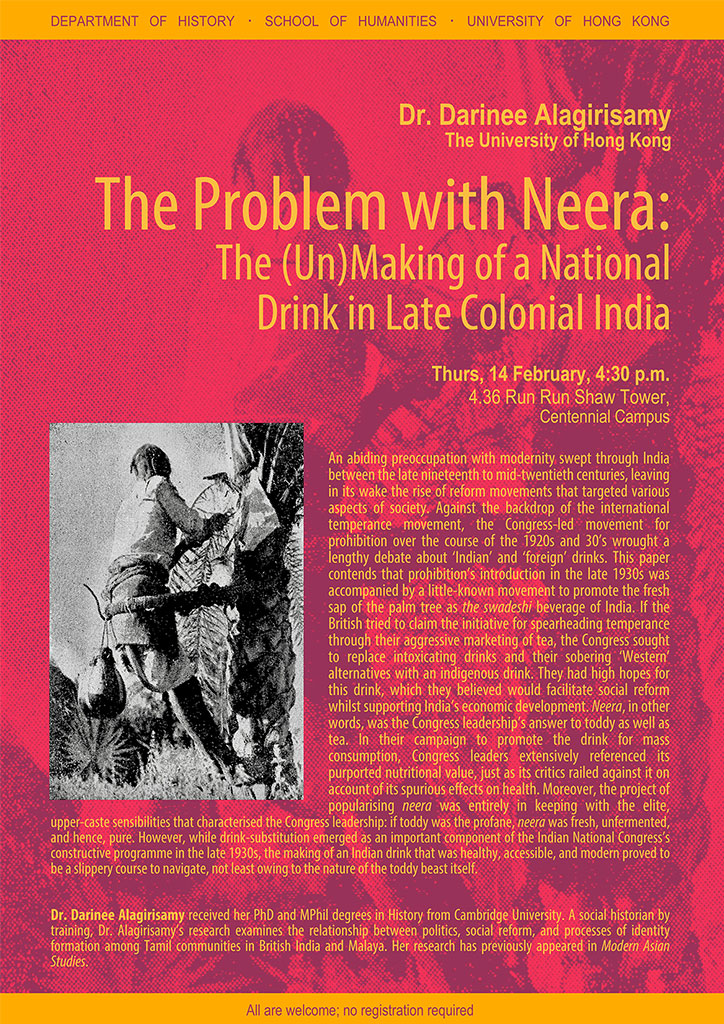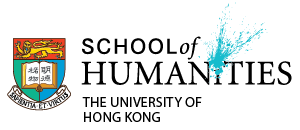
Department of History
The Problem with Neera: The (Un)Making of a National Drink in Late Colonial India
Speaker: Dr. Darinee Alagirisamy
The University of Hong Kong
An abiding preoccupation with modernity swept through India between the late nineteenth to mid-twentieth centuries, leaving in its wake the rise of reform movements that targeted various aspects of society. Against the backdrop of the international temperance movement, the Congress-led movement for prohibition over the course of the 1920s and 30’s wrought a lengthy debate about ‘Indian’ and ‘foreign’ drinks. This paper contends that prohibition’s introduction in the late 1930s was accompanied by a little-known movement to promote the fresh sap of the palm tree as the swadeshi beverage of India. If the British tried to claim the initiative for spearheading temperance through their aggressive marketing of tea, the Congress sought to replace intoxicating drinks and their sobering ‘Western’ alternatives with an indigenous drink. They had high hopes for this drink, which they believed would facilitate social reform whilst supporting India’s economic development. Neera, in other words, was the Congress leadership’s answer to toddy as well as tea. In their campaign to promote the drink for mass consumption, Congress leaders extensively referenced its purported nutritional value, just as its critics railed against it on account of its spurious effects on health. Moreover, the project of popularising neera was entirely in keeping with the elite, upper-caste sensibilities that characterised the Congress leadership: if toddy was the profane, neera was fresh, unfermented, and hence, pure. However, while drink-substitution emerged as an important component of the Indian National Congress’s constructive programme in the late 1930s, the making of an Indian drink that was healthy, accessible, and modern proved to be a slippery course to navigate, not least owing to the nature of the toddy beast itself.
Dr. Darinee Alagirisamy received her PhD and MPhil degrees in History from Cambridge University. A social historian by training, Dr. Alagirisamy’s research examines the relationship between politics, social reform, and processes of identity formation among Tamil communities in British India and Malaya. Her research has previously appeared in Modern Asian Studies.
All are welcome. No registration is required.
Date/Time: 14/02/2019 16:30 – 18:00
Venue: Room 4.36, Run Run Shaw Tower, Centennial Campus
Language: English
For further information, please visit: https://www.history.hku.hk/news_s18_alagirisamy.html
